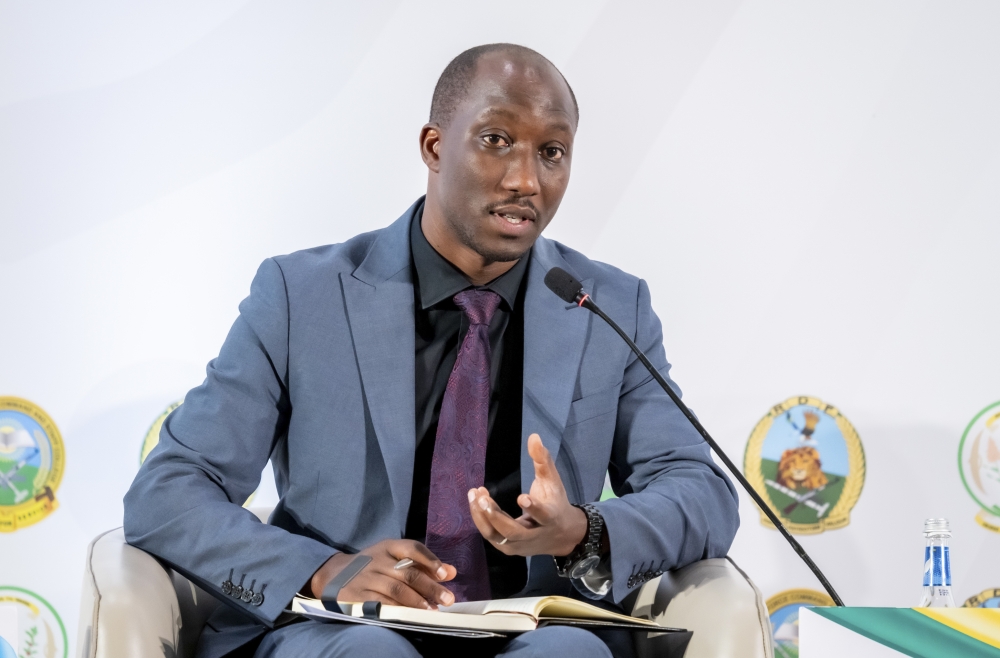

In a panel discussion on the second day of the eleventh National Security Symposium 2024, on May 23, Jimmy Gasore, the Minister of Infrastructure, highlighted Rwanda's strategic priorities in the energy sector as the government diligently works towards achieving its Vision 2050 development goals.
ALSO READ: A look at Rwanda's measures to mitigate climate change effects
Shedding light on Rwanda’s energy policy, the minister outlined three key priorities; generating sufficient energy to power national development, ensuring reasonable energy costs to maintain industrial competitiveness, and committing to sustainability and climate resilience.
"Our highest and most important priority is to generate sufficient energy to power the development of our nation," said Gasore.
ALSO READ: Energy access crucial for Africa’s economic growth – Kagame
"Once that is satisfied, we look at the cost. Energy must be available at a reasonable cost because we are trying to power our industries and investments that will compete on national, regional, and global markets,” he added emphasising that competitive tariffs are essential for this goal.
Over the past decade, the country made significant strides in electricity generation, resulting in a six-fold increase in the number of households in the country gaining access to electricity, according to official data. The installed capacity for renewable energy sources has reached 52 per cent, Gasore announced in April while chairing the 14th Assembly of the International Renewable Energy Agency in Abu Dhabi, UAE.
"Sustainability and climate resilience form the third priority,” he said, on Thursday, emphasising Rwanda's commitment to green growth and climate change mitigation.
He noted that most of Rwanda's energy generation is renewable, which aligns with the government commitments.
The country had some reliance on fossil fuels to ensure power supply, he said, but the high cost of fossil fuels has made a strong case for the country to move towards renewable energy.


ALSO READ: Rwanda: Phasing out fossil fuel in irrigation amid COP28 climate talks
"From June last year we commissioned a fossil-fueled power plant and they are still there on standby, we can use them whenever we have a crisis, but they are no longer operating as base loads,” he added.
Gasore noted that moving forward, the government also embraced generation from Compressed Natural Gas (CNG), tapping into the gas potential of Lake Kivu.
"While it is not a hundred per cent renewable, it is much greener than other alternatives. What I can say, looking ahead, is that we have few remaining hydro potentials, but mostly solar and other forms of renewable energies. Of course, with that, we also note the challenges that come with renewable energies, especially solar, where availability of power does not align with the patterns of consumption.”
He acknowledged the challenges in trying to use renewable energy.
"We have solar energy mostly during the day while we use the renewable [energy] mostly during the night. Additionally, another challenge is climate change, where renewable energy, including hydro, is vulnerable. Even in the case of solar, we also depend on day-to-day weather," he said.
Dan Klinck, the founder and CEO of East African Power (EAP), spoke about Rwanda’s regulatory policies for attracting foreign investment.
"This journey shows what Rwanda is all about developing conducive regulatory policies attracting foreign investment. It is remarkable to be in a place where 80% [of the people] have access to energy, moving towards 100%," he said.
He highlighted Rwanda's progress towards Sustainable Development Goals (SDG) goal 7, which aims for universal access to affordable, reliable, sustainable, and modern energy.
"Rwanda is hitting that target and will continue to be a gateway for more investments because Rwanda prioritizes energy at the right time.”
"Rwanda is blessed with such a high level of power that it has reached a point where supply and demand have met strategic decision-making, determining whether the country can be an energy importer or exporter," Klinck added.
ALSO READ: Youth radicalisation, violent extremism can be countered if African govts care – experts
The three-day eleventh National Security Symposium 2024 organised by Rwanda Defence Force Command and Staff College (RDFCSC) and the University of Rwanda (UR) which started in Kigali, on May 22, brought together academicians, government officials, diplomats and subject matter experts including military generals, senior military and police officers and civilians from 52 countries to discuss contemporary security issues on a revolving theme: "Contemporary Security Challenges: The African Perspective”.
On Wednesday, panelists including Maj Gen Joseph Nzabamwita, the Secretary-General of the National Intelligence and Security Services (NISS), Nickolay Mladenov, the Director General of the Abu Dhabi-based Anwar Gargash Diplomatic Academy (AGDA), and Toulu Akerele, a researcher on African jihad threats, discussed the causes of youth radicalism in Africa and ways how to counter them.
At the 10th National Security Symposium last year, it was noted that foreign interference in Africa remains a persistent destabilising factor, and its effects continue to hold back the continent’s development.


